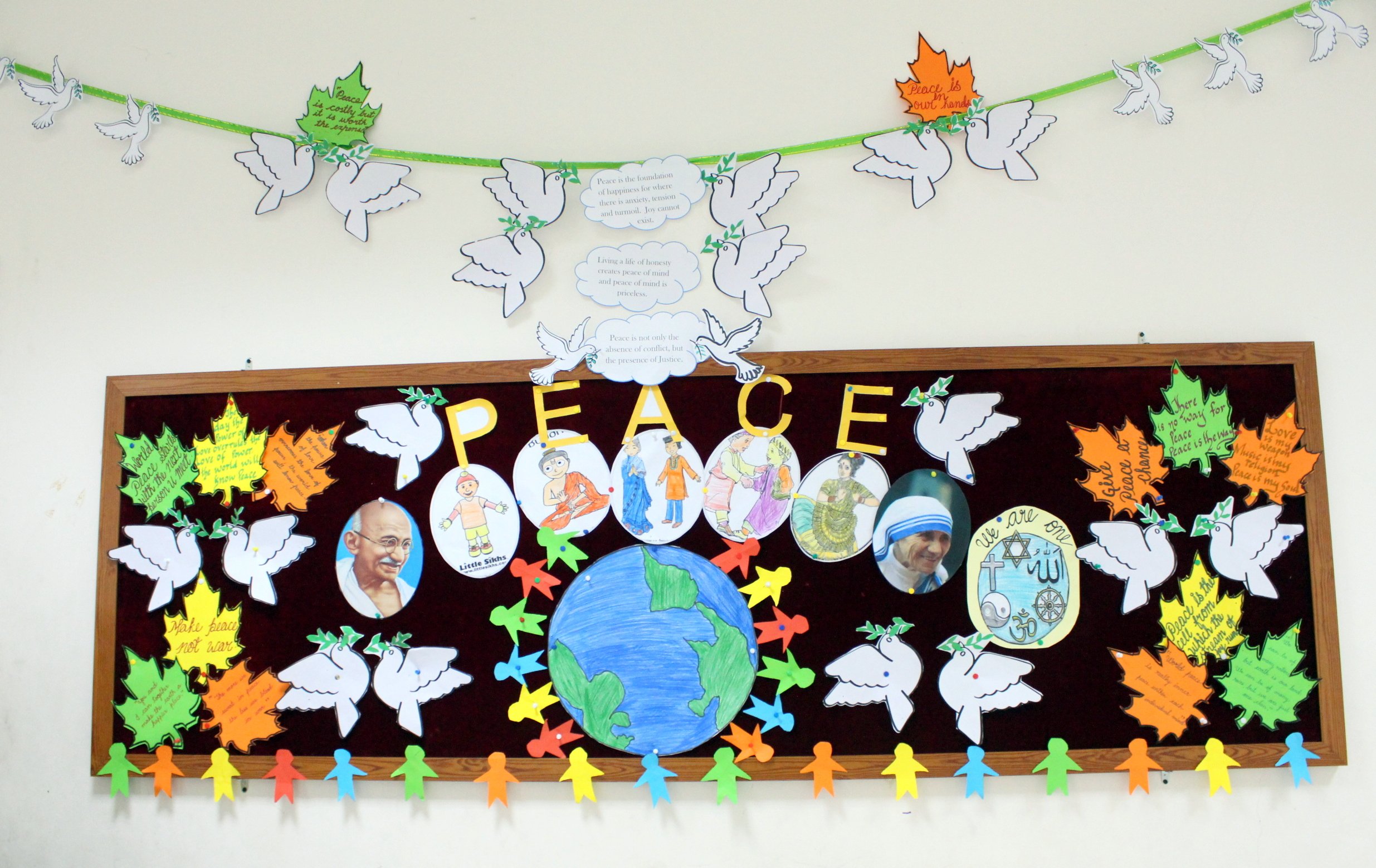In a world marked by disunity and conflict, the Bahá’í teachings illuminate a holistic pathway toward world peace, asserting that the fabric of global harmony is woven through the collective efforts of individuals embodying spiritual principles. The Bahá’í Faith encourages humanity to embark upon practical actions inspired by its central tenets, advocating the notion that peace is not merely the absence of war but rather a manifestation of profound unity and interconnectedness. This article elucidates fundamental Bahá’í teachings pertinent to initiating tangible movements towards world peace, presenting actionable steps that each individual may undertake.
1. Understanding the Oneness of Humanity
The Bahá’í principle of the oneness of humanity serves as the cornerstone of its peace-building framework. This doctrine posits that all human beings are interrelated, transcending distinctions of race, nationality, or religion. To operationalize this principle, individuals are called to cultivate a mindset rooted in empathy and inclusivity. Efforts can commence by engaging with diverse communities through dialogue and collaborative projects that emphasize commonalities while respecting differences. Implementing community-wide programs that celebrate various cultural heritages can catalyze understanding and foster a greater sense of belonging.
2. Promoting Education and Empowerment
Education is a critical tool for fostering peace, as it equips individuals with the necessary skills to critically engage with the world. The Bahá’í teachings emphasize the importance of universal education—not solely in academic pursuits but in moral and spiritual development. Communities should prioritize initiatives that enhance educational access, targeting both youth and adults. This can include establishing literacy programs, vocational training workshops, and forums for moral education. Empowering individuals through knowledge diminishes ignorance, a significant contributor to conflict, while nurturing a generation oriented towards collaboration.
3. Engaging in Service to Humanity
Acts of service embody the Bahá’í ethos of selflessness and dedication to the welfare of others. Engaging in community service projects not only addresses immediate social concerns but also cultivates a spirit of altruism integral to peace-building. Consider organizing local initiatives that respond to societal needs, such as environmental clean-ups, food drives, or health outreach programs. By addressing the underlying socio-economic disparities that often breed conflict, individuals can exemplify the Bahá’í virtue of service while advancing communal well-being.
4. Fostering Interfaith Dialogue
In a pluralistic society, fostering interfaith dialogue is paramount to dismantling prejudices and building mutual respect across differing belief systems. Bahá’í teachings advocate for collaborative exchanges that honor all faith perspectives, shining a light on shared values that unite humanity. Institutions and individuals are encouraged to host interfaith gatherings that promote understanding and respectful discussions regarding spiritual concepts and ethical responsibilities. These interactions can serve as a potent antidote to divisiveness, weaving a tapestry of unity amid diversity.
5. Practicing Forgiveness and Reconciliation
The Bahá’í Faith recognizes that conflict is often rooted in misunderstandings and grievances. Promoting forgiveness is crucial for personal and communal healing. Individuals can initiate this process by consciously practicing forgiveness in their personal relationships, seeking to mend rifts and foster reconciliation. Furthermore, communities may establish restorative justice programs that focus on healing rather than punishment, thereby addressing the root causes of conflict and facilitating constructive dialogue. This commitment to forgiveness ultimately contributes to a larger culture of peace.
6. Upholding Justice and Equity
Justice is paramount in the Bahá’í teachings, viewed as a prerequisite for peace. A commitment to societal equity ensures that all individuals are afforded rights and opportunities, irrespective of their background. Individuals and groups are encouraged to advocate for social justice initiatives that counteract systemic inequalities, such as racism, gender discrimination, and economic disparity. By actively engaging in campaigns for human rights and supporting policies that promote equity, the pursuit of a just society becomes synonymous with the pursuit of global peace.
7. Nurturing a Spiritual Environment
Creating a spiritual foundation within communities fosters a deeper understanding of one’s purpose and interconnectedness with others. Institutions can facilitate this atmosphere through workshops focusing on spiritual growth and the exploration of Bahá’í teachings. Incorporating meditation, prayer, and reflective practices into communal activities enhances not only individual spirituality but also collective harmony. By enshrining spiritual principles in daily life, communities cultivate a resilient framework for peace.
8. Advocating for Global Governance and Cooperation
The Bahá’í perspective on governance underscores the need for a collaborative global approach to tackling world issues. Individuals can contribute to this vision by advocating for international cooperation on pressing matters such as climate change, public health, and humanitarian crises. By supporting organizations that work toward global governance reforms and promoting policies that encourage peaceful coexistence, individuals play a vital role in the architecture of lasting peace.
In conclusion, the path to world peace as articulated in Bahá’í teachings is multifaceted, encompassing educational initiatives, service to humanity, interfaith dialogue, and unwavering commitment to justice. By implementing the strategies outlined above, individuals may take significant steps toward realizing a more peaceful and unified world. Each action, whether small or monumental, weaves into the intricate tapestry of collective human endeavors, reflecting the profound truth that peace is indeed a shared responsibility. As humanity embarks upon this critical journey, the Bahá’í principles serve as beacons of hope, leading us toward a future illuminated by harmony and understanding.
